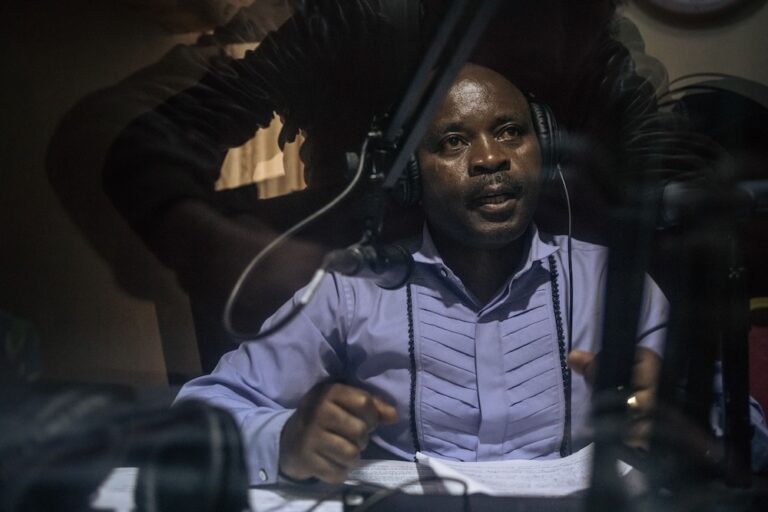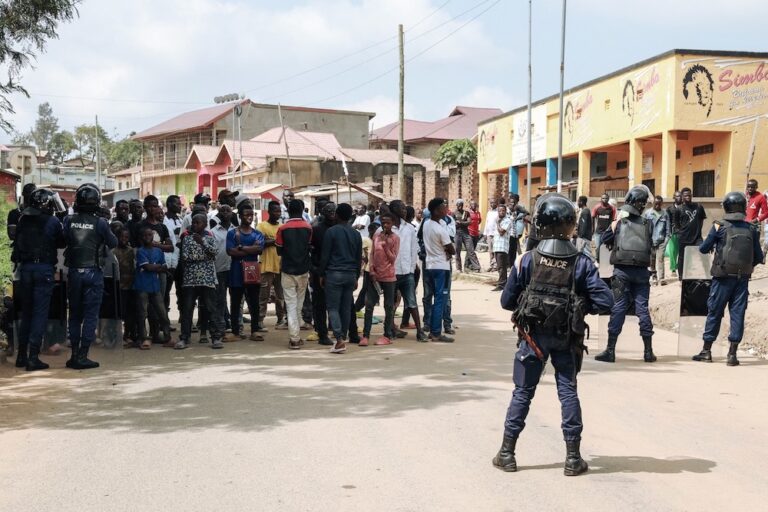**Updates IFEX alerts of 31, 30, 14, 13 and 10 December, 19 October, 30 July and 26 March 1999 and 8 December 1998** (JED/IFEX) – The following is a JED press release: “My acquittal represents a victory for ethics and journalism’s code of ethics over an erroneous notion of journalism in times of peace or […]
**Updates IFEX alerts of 31, 30, 14, 13 and 10 December, 19 October, 30 July and 26
March 1999 and 8 December 1998**
(JED/IFEX) – The following is a JED press release:
“My acquittal represents a victory for ethics and journalism’s code of ethics over an erroneous notion of journalism in times of peace or times of war,” said Joseph Mbakulu Pambu Diana, former programming director of Matadi Radiotelevision (Radiotélévision Matadi, RTM), at the conclusion of his press conference, organised by JED on Wednesday 5 January 2000 and held at the organisation’s headquarters. Some thirty Congolese journalists were in attendance.
From the very beginning of the press conference, following a brief introduction by JED’s president, Joseph Mbakulu, who has retained his sense of humour, retraced the events surrounding the rebellion’s capture of the city of Matadi, the circumstances surrounding his arrest (prompted, oddly enough, by his employer, further to the urging of two former ministers), and the unfolding of his trial, for the benefit of the assembled journalists.
Mbakulu thanked all the Congolese and international organisations who assisted in securing his release. He notably thanked the organisations Reporters sans frontières (RSF) in France, Canadian Journalists for Free Expression (CJFE) in Canada, and the Committee to Protect Journalists (CPJ) in New York for their emotional and financial support to himself and his family. He launched an appeal to organisations around the world for help now that he has been released but is unemployed, as his contract was rescinded a few days prior to his arrest. “I have been a journalist for twenty-six years. Prison is not going to change my life’s raison d’être,” he added, before concluding that his trial was not only his own but that of journalism versus politics. From now on, the Mbakulu case sets a precedent for all Congolese journalists.
Mwamba wa ba Mulamba
D. M’Baya Tshimanga


